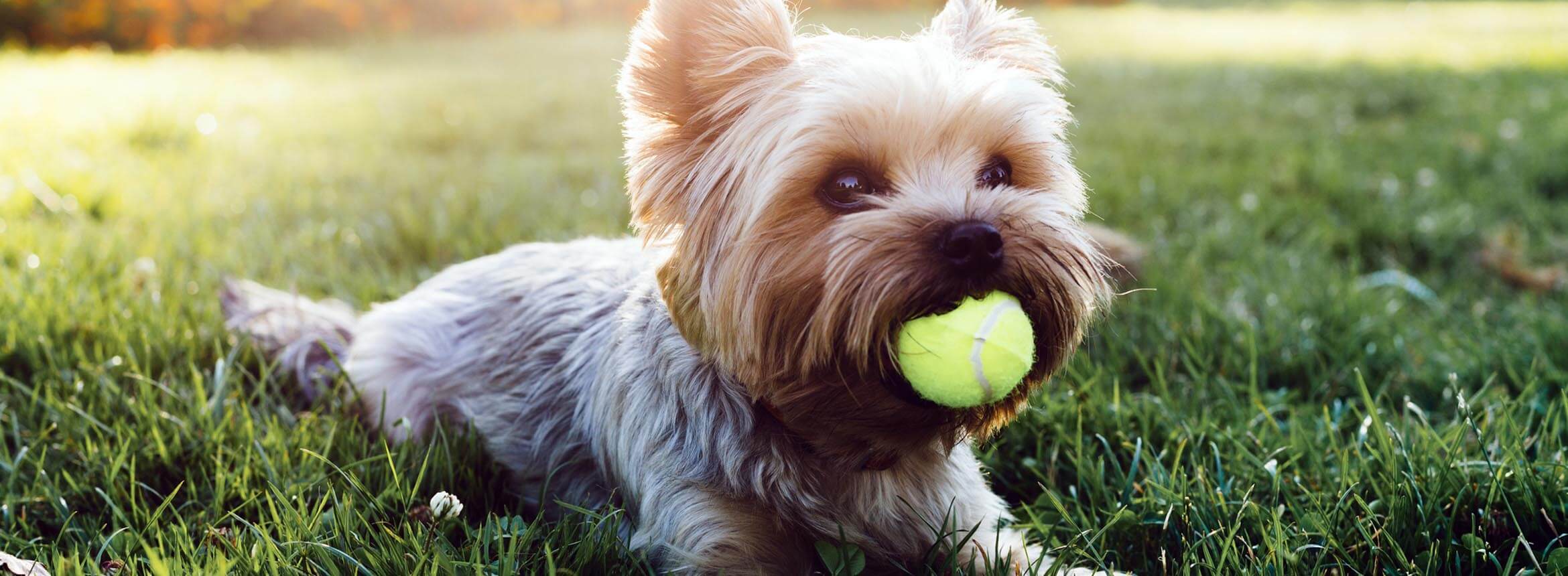The Yorkshire Terrier (or “Yorkie”) is a charming, teddy-bear-faced member of the toy group. You’ll see these spunky and sassy terriers carried in purses around big cities, rocking gorgeous, silky coats and showering love on their human companions. (They max out at seven pounds, so they’re easy to port around!) If you’re considering sharing your home with this diminutive doggie, here’s what to keep in mind.
1. Yorkies do well in small spaces.
These wee dogs are often great choices for Pet Parents living in condos or apartments. They can also be a good companion for city life, as they fit easily in a tote bag or sling. If you have small children or a busy home, however, a Yorkie may not be for you: The breed can be nippy around kids and reactive to noise.
2. Their famously flowing locks will need regular grooming.
Yorkies have long, silky coats that come in shades of black, slate, and tan. Their coat grows like human hair, so it needs regular care and attention. If you keep your Yorkie’s coat long, it should be brushed frequently, and the hair at the top of your pup’s head should be tied back to avoid eye irritation. You can also have his coat trimmed short for easier maintenance. Either way, find a good groomer and plan on visiting every few weeks.
Yorkies may also be less allergenic than other breeds. They aren’t completely hypoallergenic, but they may not cause as much of a reaction in Pet Parents with allergies.
3. That big personality will need training.
True terriers, these outgoing little pups love attention. However, this can lead to your Yorkie becoming bossy or yapping to get what he wants. Firm and gentle training is essential to teach your furry friend good manners. He may be stubborn and somewhat difficult to housebreak, but don’t give up! With consistent effort and positive reinforcement, your best pal will learn the ropes.
You should also socialize your Yorkie with other people, friendly dogs, and new environments when he’s a puppy. Yorkies can have a bit of a “watchdog” mentality, so early socialization will help prevent aggressive behaviour later.
4. Those little legs still need exercise.
You might think a pup as small as a Yorkie doesn’t need exercise, but he definitely does! Yorkies were originally bred to chase rats, so these small pooches need regular mental and physical stimulation. A few short walks a day or chasing after a ball will do the trick, as will brain games like food puzzles or hide-and-seek. You might even consider agility training with this tiny-but-mighty pup.
Important tip: Yorkies also don’t do well in extreme heat or cold weather. Keep your exercise time to the cool parts of the day during hot months and bundle your pup up when you go outside during winter.
5. Keep an eye on your pal’s health (and visit the veterinarian).
Yorkshire Terriers are generally healthy, but they can be prone to certain health conditions, like patellar luxation (dislocated kneecaps), collapsing trachea, portosystemic shunts (which result in reduced liver function), intervertebral disc disease, and certain eye anomalies. Regular visits to your vet can help you stay on top of your Yorkie’s health and happiness so you can both enjoy your every tote bag adventure!

